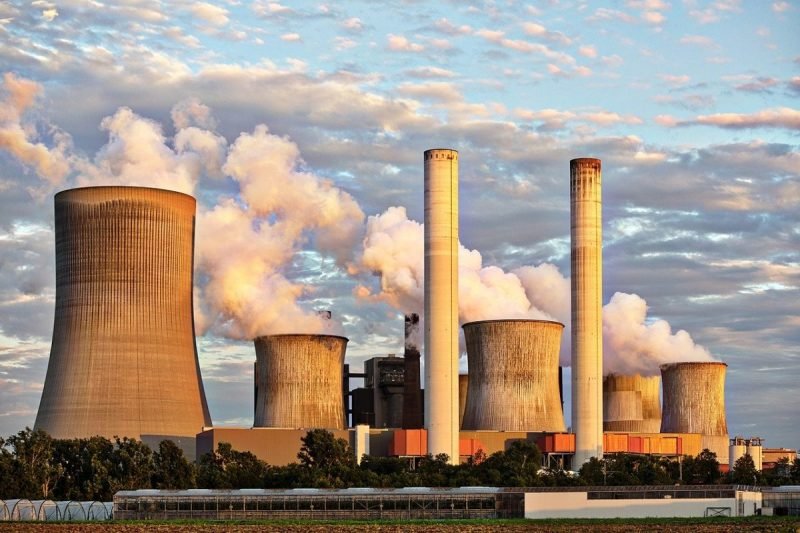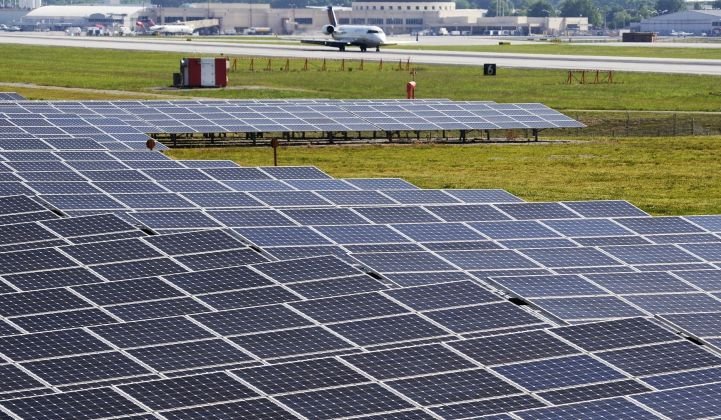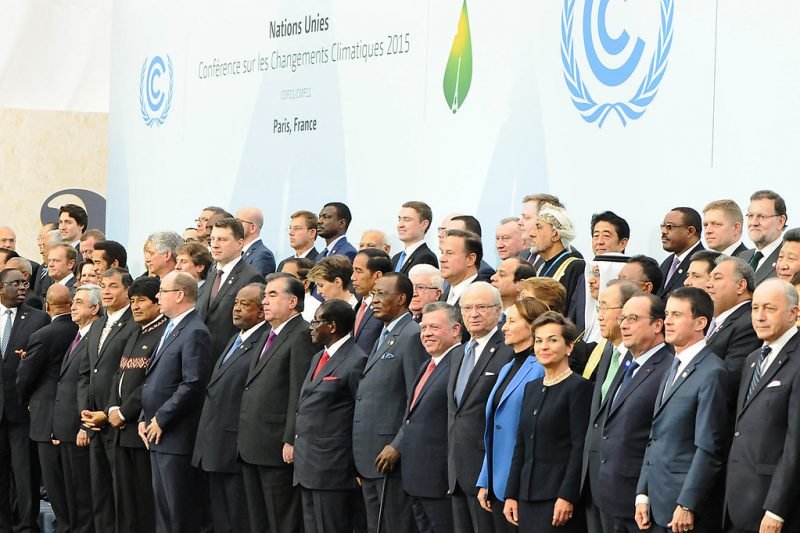A shift in narrative: Energy policy in a climate-conscious World

Energy is traditionally considered the driver of economic growth and the overall wellness of a country. As a consequence, over 60 per cent of emissions universally are a result of the energy sector. Beginning from the second half of the 20th century a new perspective has taken hold of the international energy experts regarding the strategic importance of energy security and how it should be dealt with in an increasingly climate-conscious world. Energy security and climate change have developed as essential energy policy objectives. In spite of their conflictual nature, both the objectives are addressed adjacently in policy debates around the world. A holistic view comprising three strategic pillars has therefore been put forward consisting of ‘supply security’, ‘economic competitiveness’ and ‘climate sustainability’. It has become a great deal to balance this ‘energy security triangle’ so that sustainable global, regional and national energy security could be achieved. Moreover, achieving a balance between these three pillars of the energy triangle has become a daunting task in light of the new industrial policies being undertaken in many developing and underdeveloped countries. For instance, putting subsidies on renewable energy sources and promoting alternative gas exploration disturbs this trilemma even more. Conventionally, the availability of satisfactory quantities of energy, in various forms and affordable price had been understood as ‘energy security’. With the advent of the climate protection narrative, a new definition was led out by the International Environment Agency in the year 2001 which clubbed energy security’s ‘availability’ and ‘affordability’ with ‘respect’ towards environmental concerns. Nevertheless, the two concepts – energy and climate are connected through six major aspects, which will be explored in this essay.
It also becomes increasingly pertinent to focus on this emerging nexus because policies operational in any nation domestically influence the positions held by that nation at international tables. For instance, if we take a look at the energy policy of the United Kingdom (UK), we clearly find a shift in associations, from shunning nuclear power, the UK has come full circle to re-associate nuclear power with energy security (2008 onwards). Even decarbonization, which has become an element of energy security in the UK, is now boldly portrayed in the objectives of its governmental policies both domestically and internationally.

Tackling emissions in the context of energy security, therefore, circuits a wide array of theoretical and empirical concerns spanning from international relation theories to domestic policy initiatives. One such strand can be cited using the European Union’s relationship with Russia. Domestic benefits of self-sufficiency in energy sources act as strategic leverage for countries in the international arena. Any dependence on hostile/unstable regions for energy supply can emerge as a geopolitical loss to consumer nations. Therefore, energy is a central policy area for many countries and the use of renewables is to mitigate these issues along with the ones addressed by climate change. Traditionally, import dependency had been acknowledged as the only element while assessing energy security but, of late multiple dimensions have been noticed which not only influence energy security but climate change as well. These energy security policy dimensions include – reliable infrastructure, diversity of fuel and appropriate investment along the fuel supply chain. This leaves policy initiatives like the replacement of fossil fuel energy by renewable energy and all the measures utilized to increase energy efficiency as only a few contributions towards energy security and greenhouse gas emissions reduction.
A comprehensive understanding of energy security is thus essential to locate the relationship between energy security and climate change policy objectives. Six major aspects interlink the two:
First and foremost, the International Environmental Agency (IEA) claims that by 2035 a 20 per cent increase will be witnessed in greenhouse gases (primarily CO2) due to the growing use of global fossil fuels. Secondly, 65 percent of global carbon emissions is a result of the activities undertaken by the global energy sector. Thirdly, as is self-evident from the ever-increasing global surface temperatures that are being recorded since the industrial era, a consensus has been reached about its origin and on the carbon (CO2) producing human activities. Fourthly, climate change in its extreme forms is now clearly affecting energy security, for instance, hurricanes like Katrina shutting down 21% of US refining capacity in the Gulf of Mexico and 27% of the US oil production. Thus, a visible impact of climate change can also be witnessed on energy policies, global oil supply security and oil stocks. Subsequently, as an alternative to traditional means, biofuel is being adopted by western nations to cut down CO2 emissions while ensuring energy security. Even though a probable 20% rise (globally) is being expected in the share of biofuels by 2030, increasing natural calamities resulting from climate change, like floods, shifting rainfall patterns and heat waves are undoubtedly making food production vulnerable to damage. Lastly, current energy policies pursued by nations across the globe are insufficient in addressing and limiting the increase in global average temperature to 28 degrees Celsius to which world leaders agreed at Copenhagen in 2009. This has been validated by the estimates presented by the British Royal Society which asserts that an average of four-degree increase will be seen in the global temperatures by 2070.

Clearly, the impact of climate change policies on the energy systems builds an invisible yet consequential link between climate change and energy security. When a country considers fuel switching or demand reduction under the aegis of climate change, a consequent effect is witnessed in the interaction between fuel, technology mix and energy security of a country. Drawing an example from the American outlook, the serviceability of unconventional oil and gas can help its economy in several ways, be it job creation, self-sufficiency in energy or enhancement in new industrial technologies. It would help the US to re-industrialize its energy-intensive units while slowly achieving a balanced approach towards the energy triangle. Besides, discussions that earlier formulated energy security as a policy priority to which climate change policies must contribute, have taken a dramatic shift towards potential economic implications which can arise as a result of anthropogenic climate change and put national and international security at risk. In a report issued in December 2009 by the United Nations Commission for Latin America and the Caribbean, it has been stated that even though the Caribbean and Latin America hold a small share in the global greenhouse gas emissions, the region will be severely hit by its impact. It might experience severe stress on its water supply impacting its hydro-power projects, which could push it back to rely on fossil fuels. Climate stabilization must position itself within a strong energy policy. This conclusion has been reached through two factors: the security implications of perilous climate change and the likely economic cost it carries. Recently, the concept of ‘green economy’ also presents an innovative solution, demanding less sacrifice economically and promising a positive-sum output. This will enable nations to pursue economic development along with environmental protection. From a theoretical narrative, it can be concluded that the assessment of energy security policies ought to be done in relation to its impact on climate change objectives. Therefore, placing the burden on the institutional frameworks which later transform policy objectives into political agendas.
ENDNOTES
Andrew & O’keefe, T. (n.d.). Promoting Energy Security and Tackling Climate Change: Missed Opportunities at The Cartagena Summit. https://www.brookings.edu/wp-content/uploads/2016/06/07
Bang, G., Heggelund, G., & Vevatne, J. (2005). Shifting strategies in the global climate negotiations. Retrieved from Center for International Climate and Environmental Research website: http://www.cicero.uio.no. CICERO Report 2005:08.
Bazilian, M., et al., Interactions between energy security and climate change: A focus on developing countries. Energy Policy (2011).
May, B. (2010). Energy Security and Climate Change: Global Challenges and National Responsibilities. South Asian Survey, 17(1), 19–30.
Toke, D., & Vezirgiannidou, S.-E. (2013). The relationship between climate change and energy security: key issues and conclusions. Environmental Politics, 22(4), 537–552.
Umbach, F. (2012). The intersection of climate protection policies and energy security. Journal of Transatlantic Studies, 10(4), 374–387.a shift in narrative: energy policy in a climate-conscious world


















